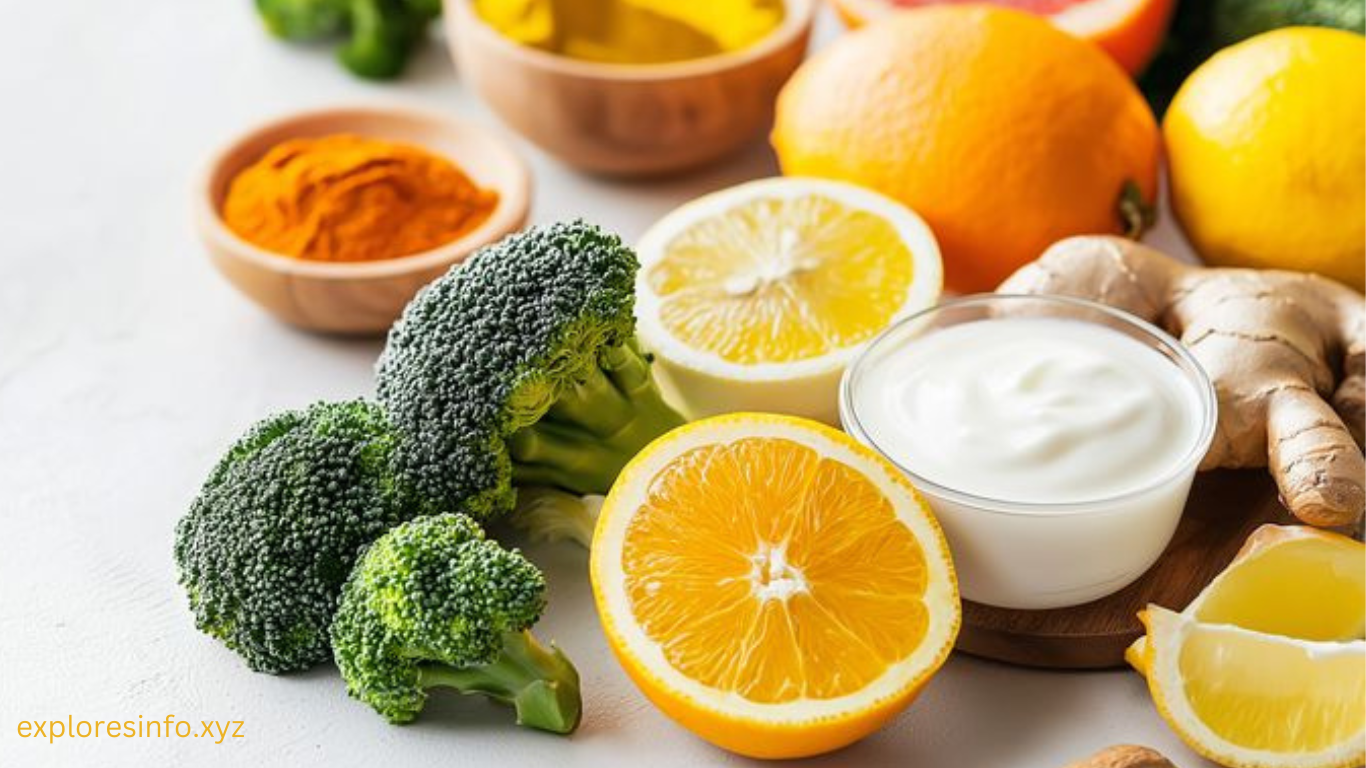Vitamin C, also known as ascorbic acid, is one of the most essential nutrients required by the human body. It plays a crucial role in maintaining overall health, supporting the immune system, and promoting skin health, among many other benefits. Despite its importance, many people are unaware of the full potential of this powerful vitamin or how to incorporate it effectively into their daily lives. This article delves into the benefits of vitamin C, its best sources, and the recommended daily intake to help you unlock its full potential.
What is Vitamin C?
This characteristic makes it necessary to consume vitamin C regularly through diet or supplements. It acts as a potent antioxidant, protecting cells from damage caused by free radicals, which are unstable molecules produced during normal metabolic processes or through exposure to environmental stressors like pollution and UV radiation.
Vitamin C is also essential for the synthesis of collagen, a protein that helps maintain the structure of skin, blood vessels, bones, and connective tissues. Additionally, it aids in the absorption of iron from plant-based foods, supports the immune system, and promotes wound healing.

The Benefits of Vitamin C
1. Boosts Immune Function
One of the most well-known benefits of vitamin C is its ability to strengthen the immune system. Vitamin C also enhances the function of these cells and protects them from oxidative stress. While it may not prevent colds entirely, studies have shown that regular vitamin C intake can reduce the severity and duration of cold symptoms.
2. Promotes Skin Health
Vitamin C is a key ingredient in many skincare products due to its role in collagen synthesis. As an antioxidant, vitamin C also helps protect the skin from damage caused by UV exposure and environmental pollutants, reducing the risk of premature aging and skin cancer.
3. Enhances Iron Absorption
Iron is a critical mineral required for the production of red blood cells and the transportation of oxygen throughout the body. However, iron from plant-based sources (non-heme iron) is not as easily absorbed as iron from animal products (heme iron). Vitamin C improves the absorption of non-heme iron, making it an essential nutrient for vegetarians, vegans, and individuals with iron-deficiency anemia.
4. Supports Heart Health
Vitamin C has been linked to a reduced risk of cardiovascular diseases. Its antioxidant properties help lower blood pressure, reduce LDL (bad) cholesterol levels, and prevent the oxidation of cholesterol, which can lead to plaque buildup in arteries. These effects contribute to better heart health and a lower risk of heart attacks and strokes.
5. Aids in Wound Healing
Vitamin C plays a vital role in the body’s ability to repair tissues and heal wounds. It is involved in the formation of collagen, which is necessary for the regeneration of skin, blood vessels, and connective tissues. Adequate vitamin C intake can speed up the healing process and reduce the risk of infections.
6. Reduces the Risk of Chronic Diseases
As a powerful antioxidant, vitamin C helps combat oxidative stress, which is a major contributor to chronic diseases such as cancer, diabetes, and arthritis. By neutralizing free radicals, vitamin C protects cells and DNA from damage, reducing the risk of these conditions.
7. Supports Brain Health
Vitamin C is essential for the production of neurotransmitters like serotonin and dopamine, which regulate mood, memory, and cognitive function. Studies have shown that individuals with higher vitamin C levels have a lower risk of developing neurodegenerative diseases like Alzheimer’s and dementia.
8. Improves Eye Health
Vitamin C is found in high concentrations in the eyes, particularly in the lens and retina. It helps protect against cataracts and age-related macular degeneration (AMD) by combating oxidative stress and supporting the health of blood vessels in the eyes.
Sources of Vitamin C
While vitamin C supplements are widely available, the best way to obtain this nutrient is through a balanced diet rich in fruits and vegetables. Here are some of the top natural sources of vitamin C:
1. Citrus Fruits
Oranges, grapefruits, lemons, and limes are some of the most popular sources of vitamin C. A single medium-sized orange provides about 70 mg of vitamin C, which is more than 75% of the recommended daily intake for adults.
2. Berries
One cup of strawberries contains approximately 85 mg of vitamin C. Which is good for health.
3. Kiwi
Kiwi is a nutrient-dense fruit that provides more vitamin C than oranges. A single kiwi contains about 64 mg of vitamin C, along with other essential nutrients like vitamin K and potassium.
4. Bell Peppers
One medium-sized red bell pepper contains around 150 mg of vitamin C, making it one of the richest sources of this nutrient.
5. Broccoli
Broccoli is a cruciferous vegetable that offers numerous health benefits, including a high vitamin C content. One cup of cooked broccoli provides about 100 mg of vitamin C.
6. Leafy Greens
Spinach, kale, and other leafy greens are not only rich in iron but also contain significant amounts of vitamin C. For example, one cup of raw spinach provides about 8 mg of vitamin C.
7. Tomatoes
Tomatoes and tomato-based products like tomato juice and sauce are good sources of vitamin C. Which is good for healthy skin.
8. Papaya
Papaya is a tropical fruit that is rich in vitamin C, providing about 95 mg per cup. It also contains digestive enzymes like papain, which aid in digestion.
9. Guava
Guava is one of the richest sources of vitamin C, with a single fruit containing over 200 mg of this nutrient. It is also high in fiber and antioxidants.
10. Supplements
For individuals who struggle to meet their daily vitamin C requirements through diet alone, supplements are a convenient option. Vitamin C supplements are available in various forms, including tablets, capsules, and powders.
Daily Recommendations for Vitamin C
According to the National Institutes of Health (NIH), the following are the recommended dietary allowances (RDAs) for vitamin C:
- Infants (0-12 months): 40-50 mg (adequate intake)
- Children (1-3 years): 15 mg
- Children (4-8 years): 25 mg
- Children (9-13 years): 45 mg
- Teenagers (14-18 years): 65-75 mg
- Adult Men (19+ years): 90 mg
- Adult Women (19+ years): 75 mg
- Pregnant Women: 85 mg
- Breastfeeding Women: 120 mg
It’s important to note that smokers require an additional 35 mg of vitamin C per day due to increased oxidative stress caused by smoking.
Signs of Vitamin C Deficiency
Vitamin C deficiency is rare in developed countries but can occur in individuals with poor dietary habits or certain medical conditions. Common signs of deficiency include:
- Fatigue and weakness
- Swollen or bleeding gums
- Slow wound healing
- Dry, splitting hair
- Rough, dry skin
- Frequent infections
- Anemia
Severe vitamin C deficiency can lead to scurvy, a condition characterized by bruising, joint pain, and tooth loss. Fortunately, scurvy is easily preventable with adequate vitamin C intake.
Tips for Maximizing Vitamin C Intake
- Eat Fresh and Raw: Vitamin C is sensitive to heat and can be destroyed during cooking. So it is good for taking fresh and raw.
- Store Properly: Exposure to air and light can degrade vitamin C. Store vitamin C-rich foods in a cool, dark place and consume them as soon as possible.
- Pair with Iron-Rich Foods: Combine vitamin C-rich foods with plant-based iron sources like spinach, lentils, and tofu to enhance iron absorption.
- Avoid Overcooking: Steaming or microwaving vegetables preserves more vitamin C than boiling.
- Consider Supplements: If you have difficulty meeting your daily vitamin C needs through diet alone, consult a healthcare professional about supplementation.

Conclusion
Vitamin C is a powerhouse nutrient that offers a wide range of health benefits, from boosting immunity to promoting skin health and reducing the risk of chronic diseases. By incorporating vitamin C-rich foods into your diet and following the recommended daily intake, you can unlock its full potential and support your overall well-being. Whether through fresh fruits, vegetables, or supplements, ensuring adequate vitamin C intake is a simple yet effective way to enhance your health and vitality.
Frequently Asked Questions (FAQs) About Vitamin C
Vitamin C is a widely discussed nutrient, but many people still have questions about its benefits, sources, and usage. Below are some of the most frequently asked questions about vitamin C, along with detailed answers to help you better understand this essential vitamin.
1. What is vitamin C, and why is it important?
It is essential for collagen synthesis, immune function, wound healing, and the absorption of iron from plant-based foods. Vitamin C also protects cells from damage caused by free radicals, reducing the risk of chronic diseases and supporting overall health.
2. What are the main benefits of vitamin C?
Vitamin C offers numerous health benefits, including:
- Boosting immune function
- Promoting skin health and collagen production
- Enhancing iron absorption
- Supporting heart health
- Aiding in wound healing
- Reducing the risk of chronic diseases
- Supporting brain health
- Improving eye health
3. How much vitamin C do I need daily?
The recommended daily intake of vitamin C varies by age, gender, and life stage:
- Adult Men: 90 mg
- Adult Women: 75 mg
- Pregnant Women: 85 mg
- Breastfeeding Women: 120 mg
- Smokers: An additional 35 mg (due to increased oxidative stress)
Children and teenagers have lower requirements, ranging from 15 mg to 75 mg depending on their age.
4. What are the best food sources of vitamin C?
- Citrus fruits (oranges, grapefruits, lemons)
- Berries (strawberries, raspberries, blueberries)
- Kiwi
- Bell peppers (especially red peppers)
- Broccoli
- Leafy greens (spinach, kale)
- Tomatoes
- Papaya
- Guava
5. Can I get vitamin C from my diet ?
Yes, most people can meet their daily vitamin C requirements through a balanced diet rich in fruits and vegetables. However, individuals with limited access to fresh produce, certain medical conditions, or increased nutritional needs (e.g., smokers or pregnant women) may benefit from supplements.
6. Are vitamin C supplements necessary?
Vitamin C supplements are not necessary for everyone but can be helpful for:
- Individuals with dietary restrictions or poor eating habits
- Smokers
- People with malabsorption issues
- Those recovering from illness or surgery
- Individuals with increased nutritional needs (e.g., pregnant or breastfeeding women)
7. Can I take too much vitamin C?
Vitamin C is generally safe, but excessive intake (more than 2,000 mg per day for adults) can lead to side effects such as:
- Digestive issues (diarrhea, nausea, stomach cramps)
- Kidney stones (in susceptible individuals)
- Iron overload (in people with hemochromatosis)
8. What are the signs of vitamin C deficiency?
Common signs of vitamin C deficiency include:
- Fatigue and weakness
- Swollen or bleeding gums
- Slow wound healing
- Dry, splitting hair
- Rough, dry skin
- Frequent infections
- Anemia
Severe deficiency can lead to scurvy, a condition characterized by bruising, joint pain, and tooth loss.
9. Can vitamin C prevent or cure the common cold?
While vitamin C cannot prevent colds, it may reduce the severity and duration of symptoms. Regular intake of vitamin C has been shown to boost immune function, making it easier for the body to fight off infections.
10. Is vitamin C good for skin health?
Yes, vitamin C is excellent for skin health. It promotes collagen production, which helps maintain skin elasticity and reduce wrinkles. As an antioxidant, it also protects the skin from damage caused by UV rays and environmental pollutants, reducing the risk of premature aging and skin cancer.
11. Can vitamin C help with iron deficiency?
Yes, vitamin C enhances the absorption of non-heme iron (the type of iron found in plant-based foods). Pairing vitamin C-rich foods with iron-rich foods (e.g., spinach with bell peppers or lentils with tomatoes) can help improve iron levels, especially in vegetarians and vegans.
12. Does cooking affect vitamin C content?
Yes, vitamin C is sensitive to heat, light, and air. Cooking, especially boiling, can reduce the vitamin C content of foods. To preserve vitamin C, eat fruits and vegetables raw or lightly cooked (e.g., steaming or microwaving).
13. Can vitamin C improve heart health?
Yes, vitamin C supports heart health by:
- Lowering blood pressure
- Reducing LDL (bad) cholesterol levels
- Preventing the oxidation of cholesterol, which can lead to plaque buildup in arteries
These effects contribute to a reduced risk of heart disease.
14. Is vitamin C safe for children?
Yes, vitamin C is safe for children when consumed in appropriate amounts. The recommended daily intake for children ranges from 15 mg to 45 mg, depending on their age. Encourage children to eat vitamin C-rich foods like fruits and vegetables rather than relying on supplements.
15. Can vitamin C help with stress?
Vitamin C plays a role in regulating the body’s stress response. It helps reduce levels of cortisol, a stress hormone, and supports the adrenal glands. While it won’t eliminate stress entirely, adequate vitamin C intake can help the body cope better with stress.
16. Does vitamin C interact with medications?
Vitamin C can interact with certain medications, including:
- Chemotherapy drugs
- Statins (cholesterol-lowering drugs)
- Blood thinners (e.g., warfarin)
- Aluminum-containing antacids
If you are taking any medications, consult your doctor before starting vitamin C supplements.
17. Can vitamin C help with weight loss?
Vitamin C is not a weight-loss miracle, but it can support weight management by:
- Boosting metabolism
- Reducing oxidative stress, which is linked to obesity
- Improving energy levels for physical activity
However, a balanced diet and regular exercise are essential for sustainable weight loss.
18. Is vitamin C effective for treating infections?
Vitamin C supports immune function and can help the body fight infections more effectively. While it is not a cure for infections, it may reduce the severity and duration of symptoms.
19. Can I take vitamin C with other vitamins?
Yes, vitamin C can be taken with other vitamins. In fact, it works synergistically with certain nutrients, such as vitamin E and zinc, to enhance their antioxidant effects. However, avoid taking excessive amounts of multiple supplements without medical advice.
20. How do I know if I’m getting enough vitamin C?
If you consume a balanced diet rich in fruits and vegetables, you are likely meeting your vitamin C needs. Signs of adequate intake include healthy skin, strong immunity, and overall well-being.
By understanding the importance of vitamin C and how to incorporate it into your daily life, you can unlock its full potential and enjoy its many health benefits. Whether through diet or supplements, vitamin C is a simple yet powerful way to support your overall health.
